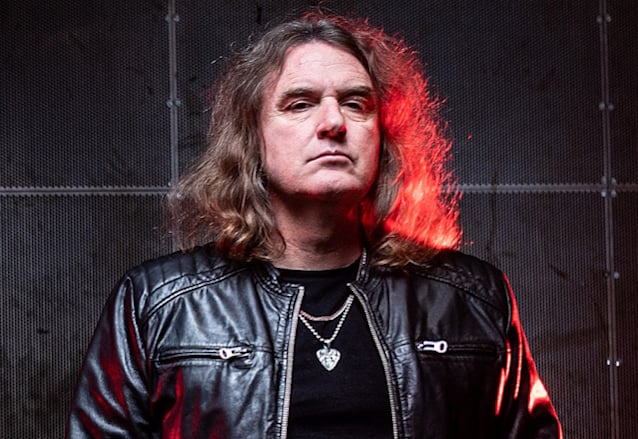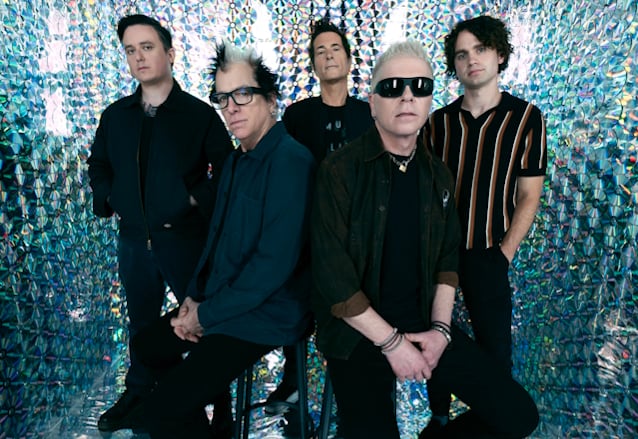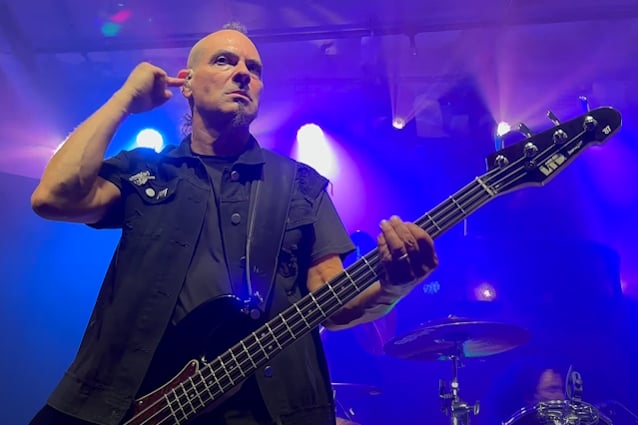In a new interview with Tommy London, host of SiriusXM’s Classic Rewind, original FOREIGNER singer Lou Gramm reflected on his decision to leave the band more than two decades ago. He said (as transcribed by BLABBERMOUTH.NET): “In the late ’90s, early 2000s, Mick [Jones, FOREIGNER guitarist and main songwriter] and I began writing. And we put some really, really good ideas together… I think we had about seven songs complete. And we were hoping to finish with about three or four more songs and put out a new FOREIGNER album, which there hadn’t been a new FOREIGNER album in over a decade. We were also touring. We were playing something called ‘Night Of The Proms’ [in October 2002]. It was done in Brussels, Belgium, and they had a huge indoor tennis arena where there could be four games of tennis going on at once. It held 80,000 people. And after that series of shows, I left the band…. I just had enough.”Elaborating on the tension between him and Jones that led to his departure from FOREIGNER, Lou said: “[Mick is] the founder of the band, he’s the leader of the band, but he wasn’t necessarily doing the job the way he used to do it, and he was suppressing a lot of my creativity. ‘Just sing your parts, Lou.’ And after contributing to just about every hit song that the band had released in 20-some years, to be reduced to just a non-creative part, just the singer, didn’t sit well with me. So, after that ‘Night Of The Proms’, we all flew back to the States [and] I informed the management that I was leaving the band. [They said], ‘Why? What could be wrong? Everything’s going so good.’ I said, ‘It’s not going good.’ I said, ‘I’m being shut out creatively, which is extremely important to me.’ I said, ‘I’m not just a singer. I’m a songwriter.’ I said, ‘And I always have been, even before FOREIGNER.’ So I left the band. And I’ve never had any regrets about it since.”Gramm was the voice on FOREIGNER’s biggest hits, including “Feels Like The First Time” and “Cold As Ice” from the band’s eponymous debut in 1977, and later songs like “Hot Blooded” and “I Want to Know What Love Is”.The 74-year-old Gramm left FOREIGNER for good in 2002 and has battled health issues in recent years, including the removal of a non-cancerous tumor. He told the Democrat & Chronicle in 2018 that he was planning to retire, but still reunited with FOREIGNER for several shows that year to celebrate the band’s 40th anniversary.FOREIGNER replaced Gramm with Kelly Hansen in 2005. Jones, the only remaining original member of FOREIGNER, suffered from some health issues beginning in 2011, eventually resulting in heart surgery in 2012.This past February, Jones revealed on social media that he was battling Parkinson’s disease, which explained his absence from FOREIGNER’s live shows since 2022.Gramm and Jones’s June 2013 performance of “I Want To Know What Love Is” and “Juke Box Hero” at the Songwriters Hall Of Fame in New York City marked the first time the pair performed together in a decade after Gramm left FOREIGNER for a second time. Hansen has fronted the group for the past 18 years.In October 2023, Gramm once again said that greed was the reason he wasn’t listed as one of the songwriters for FOREIGNER’s’s smash hit song “I Want To Know What Love Is”. The power ballad, which is credited solely to Jones, was released in November 1984 as the lead single from the group’s fifth album, “Agent Provocateur”.Gramm discussed his supposed lack of contribution to the track during an interview with Justin Young of Monsters, Madness And Magic. Speaking about his involvement with the songwriting process on “Agent Provocateur”, he said: “ For me, the sticking points were when we started writing songs. Nine out of 10 ideas that Mick showed me, he was playing keyboard and they were midtempo, somewhat rock songs — not heavy or anything. They were nice, they were good songs and the music was nice, but it wasn’t dynamic in any stretch of the imagination the way FOREIGNER ‘4’ was. And then, then there was ‘I Want To Know What Love Is’. He played me the idea for that song and I liked it. And I was not a ballad guy, but that song was very special. And we worked on that song. He had a house about 20 minutes from my house, so I was over his house at least five out of seven nights a week having dinner and working till one or two in the morning with him on that song specifically. And we would just hit creative dead ends and walk away from it frustrated. But we kept plugging away, and we ended up getting the body of the song correct, and the chorus, lyrics and melody the way we wanted it, and we were set to go in and record it. Mick had a friend, a young black guy, who he knew from years ago, and he heard the song and told Mick that he had been working for a gospel label the past few years. And he says, ‘I know what the song needs.’ He says, ‘It needs a gospel choir in the choruses.’ And Mick kind of was taken aback and he thought about it and he goes, ‘You could be right.’ And his friend says, ‘I have just the choir for you. It’s New Jersey Mass Choir.’ He says, ‘They’ve had hits on their own in the gospel charts.’ So on the day that they came down to sing the choruses, I was in one studio next door to where they were — just myself and an engineer. I was singing the lead vocal to the song, which hadn’t been done yet. So Mick was consumed with the choir and making sure that that they sounded the way they should, and I was in the next studio over singing the lead vocal. Usually when I would sing the lead vocal, Mick wouldn’t be more than three feet away from me offering suggestions, little criticisms and making sure it came out the way he wanted it. When I walked in there to sing that lead vocal, I didn’t see him for four hours. And when I saw him, I handed him the tape and I said, ‘I’m done’. And he looked at me, like, ‘What do you mean you’re done? I haven’t even heard it yet.’ He didn’t say that, but then with the gospel choir there in front of the mics, he played my version with my lead vocals on it and my vocals on the chorus too. And the choir sang along with the choruses. And I got goosebumps and chills all over my body. And I looked over at Mick, and he was crying.”Elaborating on the disagreement over songwriting credits for “I Want To Know What Love Is”, Gramm continued: “When we were recording that album, at the end of completion of every song, Mick and I would sit down at a table, and on a little piece of paper we would write out what we thought the split was for the song between the two of us as writers, and we’d done that from album one. So, like, ‘Hot Blooded’ was 50-50, ‘Double Vision’ was 60 for Mick, 40 for me. And other songs had different, different splits. And I wrote 60 for Mick, 40 for me, and I slid that piece of paper over to him, and he slid one over to me. So I saw him look at my piece of paper, and he didn’t smile or anything; he had stone face on. And I picked up my piece of paper. You know what he had on it? 95-5 for him. We had worked on that song since it was just a little tiny idea for weeks and weeks and weeks until it became a song. I was involved in the melody, in the arrangement of the song, and plus I sang the ad-libs and I sang the hell out of the song. And his best offer was 95-5. I was insulted, I was angry and I knew right away why it was. Because he knew that song was gonna be Number One and he wanted it all for himself. But he would sacrifice five percent. I tore the piece of paper up and I says, ‘Mick, I know why you’re doing this.’ I says, ‘You want the song for yourself, so it just says ‘Jones’ under writers.’ I says, ‘You do that.’ I said, ‘I don’t want any part of it.’ So he did. The song went to Number One. The song itself sold millions — millions and millions of songs. I think it went two and a half times platinum just for the single. It was immediately re-recorded by Wynonna Judd. She re-recorded it and had a worldwide hit with it. So it was a Number One hit for three other artists. He made millions and millions of dollars off just that song. I didn’t see a nickel.”




